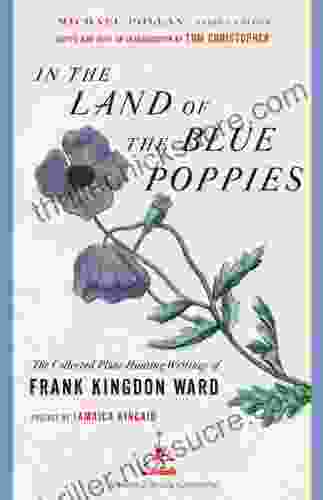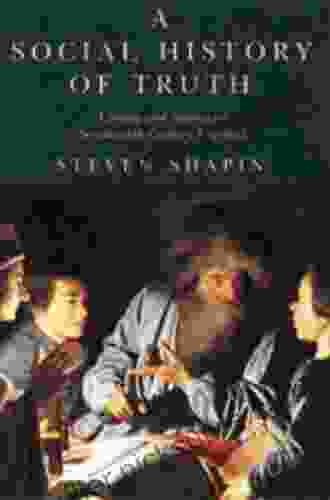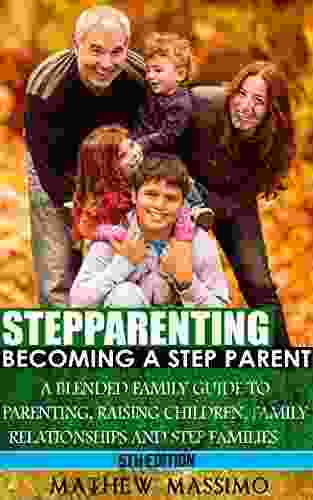A Comprehensive Exploration of the Social History of Truth

Truth is a complex and multifaceted concept that has been debated by philosophers and theologians for centuries. In recent years, historians have begun to explore the social history of truth, examining how different cultures and societies have defined and understood truth. This article provides a comprehensive overview of the social history of truth, from its origins in ancient Greece to its modern-day manifestations.
The Origins of Truth in Ancient Greece
The concept of truth can be traced back to ancient Greece, where it was first explored by philosophers such as Plato and Aristotle. Plato argued that truth is an objective reality that exists independently of human opinion. He believed that truth could be discovered through reason and contemplation. Aristotle, on the other hand, took a more pragmatic approach to truth. He argued that truth is not absolute, but rather relative to the specific context in which it is uttered.
4.7 out of 5
| Language | : | English |
| File size | : | 8321 KB |
| Text-to-Speech | : | Enabled |
| Enhanced typesetting | : | Enabled |
| Word Wise | : | Enabled |
| Print length | : | 518 pages |
| Lending | : | Enabled |
| Screen Reader | : | Supported |
| X-Ray for textbooks | : | Enabled |
The Greek concept of truth had a profound impact on Western thought. It helped to shape the development of science, law, and religion. In the centuries that followed, philosophers and theologians would continue to debate the nature of truth, but the basic framework established by the ancient Greeks would remain largely intact.
The Social History of Truth in the Middle Ages
During the Middle Ages, the concept of truth was closely tied to the Christian faith. Christian theologians argued that truth was revealed by God through the Bible. They believed that the Bible was the ultimate source of truth and that all other sources of knowledge were subordinate to it.
The medieval concept of truth was not without its critics. Some philosophers, such as Thomas Aquinas, argued that reason and observation could also lead to truth. However, the Church ultimately condemned these views as heresy. As a result, the medieval period was a time of relative intellectual stagnation.
The Social History of Truth in the Renaissance and Enlightenment
The Renaissance and Enlightenment were periods of great intellectual ferment. During these periods, scholars began to question the traditional authority of the Church and to explore new ways of understanding the world. This led to a renewed interest in the concept of truth.
Renaissance and Enlightenment thinkers such as Francis Bacon and John Locke argued that truth could be discovered through observation and experimentation. They believed that human reason was capable of discovering the laws of nature and that these laws could be used to improve the human condition.
The Renaissance and Enlightenment concept of truth had a profound impact on the development of modern science and technology. It also helped to shape the development of modern democracy and human rights.
The Social History of Truth in the Modern World
In the modern world, the concept of truth has become increasingly complex. The rise of science and technology has led to a new understanding of the natural world. At the same time, the rise of mass media and social media has made it possible for people to share their own opinions and beliefs with a global audience.
This has led to a new era of skepticism and relativism. Many people no longer believe that there is such a thing as objective truth. Instead, they believe that truth is subjective and depends on the individual's own experiences and beliefs.
The modern world is a time of great uncertainty and change. The concept of truth is no longer as clear-cut as it once was. However, the social history of truth can help us to understand the different ways that people have defined and understood truth throughout history. This can help us to be more tolerant of other people's beliefs and to make better decisions about our own lives.
The social history of truth is a complex and fascinating topic. It is a story of how people have defined and understood truth throughout history. This story is still being written today, as we continue to grapple with the challenges of a rapidly changing world.
The social history of truth can teach us a lot about ourselves and our world. It can help us to understand the different ways that people make sense of the world and to be more tolerant of other people's beliefs. It can also help us to make better decisions about our own lives.
4.7 out of 5
| Language | : | English |
| File size | : | 8321 KB |
| Text-to-Speech | : | Enabled |
| Enhanced typesetting | : | Enabled |
| Word Wise | : | Enabled |
| Print length | : | 518 pages |
| Lending | : | Enabled |
| Screen Reader | : | Supported |
| X-Ray for textbooks | : | Enabled |
Do you want to contribute by writing guest posts on this blog?
Please contact us and send us a resume of previous articles that you have written.
 Fiction
Fiction Non Fiction
Non Fiction Romance
Romance Mystery
Mystery Thriller
Thriller SciFi
SciFi Fantasy
Fantasy Horror
Horror Biography
Biography Selfhelp
Selfhelp Business
Business History
History Classics
Classics Poetry
Poetry Childrens
Childrens Young Adult
Young Adult Educational
Educational Cooking
Cooking Travel
Travel Lifestyle
Lifestyle Spirituality
Spirituality Health
Health Fitness
Fitness Technology
Technology Science
Science Arts
Arts Crafts
Crafts DIY
DIY Gardening
Gardening Petcare
Petcare Breanna Hayse
Breanna Hayse Trish Kuffner
Trish Kuffner Brett Hull
Brett Hull Heyward Coleman
Heyward Coleman Lindsey Schlessinger
Lindsey Schlessinger Wilborn Hampton
Wilborn Hampton Seb Falk
Seb Falk Diana J Mason
Diana J Mason Matthew Desmond
Matthew Desmond Jay H Lefkowitch
Jay H Lefkowitch Brian Noyes
Brian Noyes Caitlin Flanagan
Caitlin Flanagan Lucinda Scala Quinn
Lucinda Scala Quinn Roshani Chokshi
Roshani Chokshi Keith Foskett
Keith Foskett Jennifer Comeaux
Jennifer Comeaux Calvin Trillin
Calvin Trillin Grace Mariana Rector
Grace Mariana Rector Luis Angel Echeverria
Luis Angel Echeverria Genie Reads
Genie Reads Htebooks
Htebooks David M Ewalt
David M Ewalt J R Mathews
J R Mathews David Flanagan
David Flanagan Martin Wells
Martin Wells Kate S Martin
Kate S Martin Robert Ullman
Robert Ullman Brogan Steele
Brogan Steele Jp Lepeley
Jp Lepeley J F James
J F James Thomas Malory
Thomas Malory Jules Wake
Jules Wake Collins O Onwe
Collins O Onwe Joanna Sayago Golub
Joanna Sayago Golub Emil Frlez
Emil Frlez Dan Fullerton
Dan Fullerton Rosalyn Sheehy
Rosalyn Sheehy Michael Omi
Michael Omi Danny Staple
Danny Staple Salima Ikram
Salima Ikram Renee Jain
Renee Jain Brian Kilmeade
Brian Kilmeade Elizabeth Dupart
Elizabeth Dupart John Jeffries Martin
John Jeffries Martin Doug Peacock
Doug Peacock Catherine Shainberg
Catherine Shainberg Cecilia Twinch
Cecilia Twinch Stephanie Sarkis
Stephanie Sarkis Nachole Johnson
Nachole Johnson Mitt Romney
Mitt Romney Denise Long
Denise Long Kerry Mcdonald
Kerry Mcdonald Patrick Carnes
Patrick Carnes Ethan Bezos
Ethan Bezos Mohammad F Anwar
Mohammad F Anwar Joanna Faber
Joanna Faber Guido W Imbens
Guido W Imbens Lee Alan Dugatkin
Lee Alan Dugatkin Ji Kim
Ji Kim Matt Schifferle
Matt Schifferle Adrienne Onofri
Adrienne Onofri Steve Oakes
Steve Oakes Zigzag English
Zigzag English Ksenia K
Ksenia K Matt Morton
Matt Morton Jimmie Holland
Jimmie Holland Matt Davids
Matt Davids Mary Morrison
Mary Morrison David Hoffman
David Hoffman E L Konigsburg
E L Konigsburg David Barrett
David Barrett Robert Wright
Robert Wright David Cannon
David Cannon Curtis Wilkie
Curtis Wilkie Ilchi Lee
Ilchi Lee Brian Reddington
Brian Reddington Santari Green
Santari Green Patty Wipfler
Patty Wipfler Larry A Yff
Larry A Yff Juliet Miller
Juliet Miller Tyler Hamilton
Tyler Hamilton Lukas M Verburgt
Lukas M Verburgt Stephen Hawking
Stephen Hawking Rahul Jandial
Rahul Jandial Brian Gewirtz
Brian Gewirtz Joseph Burbridge
Joseph Burbridge Deepak Chopra
Deepak Chopra Celina Grace
Celina Grace Kathleen Taylor
Kathleen Taylor Judy H Wright
Judy H Wright Nicole Morales Lm Cpm
Nicole Morales Lm Cpm Ivan Savov
Ivan Savov Michael O Emerson
Michael O Emerson Harold Gatty
Harold Gatty Ian Tuhovsky
Ian Tuhovsky Harry Vardon
Harry Vardon Carol Dawson
Carol Dawson Inge Bell
Inge Bell Scott Haines
Scott Haines Paula Span
Paula Span Steve Wiegand
Steve Wiegand Samuel Greenberg
Samuel Greenberg Judith A Owens
Judith A Owens Kaylene Yoder
Kaylene Yoder Michael Shaw
Michael Shaw Garrett Redfield
Garrett Redfield Hiram Bingham
Hiram Bingham Dr Alison Dibarto Goggin
Dr Alison Dibarto Goggin Lana Peek
Lana Peek Henry Worsley
Henry Worsley Tobe Melora Correal
Tobe Melora Correal Brittany Cavallaro
Brittany Cavallaro David Murray
David Murray Claudia M Gold
Claudia M Gold Richard Bass
Richard Bass Dava Sobel
Dava Sobel Natalia Rojas
Natalia Rojas Dr Nanhee Byrnes
Dr Nanhee Byrnes Mary Strand
Mary Strand Brian R King
Brian R King Loan Le
Loan Le Dusan Petkovic
Dusan Petkovic Sue Wieger
Sue Wieger St Teresa Of Avila
St Teresa Of Avila Bobbi Conner
Bobbi Conner Nathan Halberstadt
Nathan Halberstadt Genevieve Bardwell
Genevieve Bardwell Nate Allen
Nate Allen Ursula Hackett
Ursula Hackett Penny Alexander
Penny Alexander Nicholas Gallo
Nicholas Gallo Chukwuma Eleodimuo
Chukwuma Eleodimuo Cecelia Ahern
Cecelia Ahern William Souder
William Souder Joan Nathan
Joan Nathan Manfred Theisen
Manfred Theisen Mitchel P Roth
Mitchel P Roth Kalynn Bayron
Kalynn Bayron Harry Bauld
Harry Bauld Pittacus Lore
Pittacus Lore Avery Faigenbaum
Avery Faigenbaum Neil Postman
Neil Postman Chuck Callaway
Chuck Callaway Malcolm Hebron
Malcolm Hebron Peter Allison
Peter Allison Steven Cross
Steven Cross Tim Dunn
Tim Dunn Helen Zee
Helen Zee Christy Teglo
Christy Teglo Maggie Dallen
Maggie Dallen Derick Lugo
Derick Lugo Pastor Ahyh
Pastor Ahyh Leigh Pearson
Leigh Pearson Jackson T Markbrown
Jackson T Markbrown Stephanie Perkins
Stephanie Perkins Jacques Vallee
Jacques Vallee Rob Coppolillo
Rob Coppolillo David Barrie
David Barrie Esther Hicks
Esther Hicks Thomas A Jacobs
Thomas A Jacobs George Olsen
George Olsen Bonnie Henderson
Bonnie Henderson Sunil Tanna
Sunil Tanna Mariana Monteiro
Mariana Monteiro Nancy Boyd Franklin
Nancy Boyd Franklin John Monaghan
John Monaghan Jackie Freeman
Jackie Freeman Paul Simpson
Paul Simpson Rory D Nelson
Rory D Nelson F R Lifestyle
F R Lifestyle John Mcenroe
John Mcenroe Estelle Dautry
Estelle Dautry Gabriel F Federico
Gabriel F Federico Jane Albert
Jane Albert Jemar Tisby
Jemar Tisby David Mcclung
David Mcclung D Enette Larson Meyer
D Enette Larson Meyer Jonathan H Turner
Jonathan H Turner David Hatcher Childress
David Hatcher Childress Ned Mcintosh
Ned Mcintosh Lenore Skenazy
Lenore Skenazy Michael Masters
Michael Masters Luis Preto
Luis Preto Diane Ravitch
Diane Ravitch Michael Mason
Michael Mason Grace Mccready
Grace Mccready Joe Grant
Joe Grant Colette Harris
Colette Harris Rachel Mcgrath
Rachel Mcgrath Nadim Saad
Nadim Saad Steven Emanuel
Steven Emanuel Kara Forney
Kara Forney Samuel Arbesman
Samuel Arbesman Marco Polo
Marco Polo Xavier Wells
Xavier Wells William Shakespeare
William Shakespeare Linda Carter
Linda Carter Soong Chan Rah
Soong Chan Rah Khalid Khashoggi
Khalid Khashoggi Jean Nayar
Jean Nayar Keith Ammann
Keith Ammann Karen Wilkinson
Karen Wilkinson Jaime Flowers
Jaime Flowers Maurice Herzog
Maurice Herzog Elwyn Hartley Edwards
Elwyn Hartley Edwards Courtney Macavinta
Courtney Macavinta Nora Roberts
Nora Roberts Kicki Hansard
Kicki Hansard Charlie Francis
Charlie Francis Tom M Apostol
Tom M Apostol Richard Blais
Richard Blais Paul Carus
Paul Carus Alan D Moore
Alan D Moore Keith Ryan Cartwright
Keith Ryan Cartwright Gjoko Muratovski
Gjoko Muratovski Kathleen Bartholomew
Kathleen Bartholomew Megan Whalen Turner
Megan Whalen Turner Frederick Grinnell
Frederick Grinnell John Fraser Hart
John Fraser Hart Dinesh Kumar Goyal
Dinesh Kumar Goyal Meg Cabot
Meg Cabot Della Ata Khoury
Della Ata Khoury Shannon Warden
Shannon Warden Elizabeth Davis
Elizabeth Davis Gerald L Schroeder
Gerald L Schroeder John Connelly
John Connelly Jodi Aman
Jodi Aman Caitlyn Dare
Caitlyn Dare Dan Jones
Dan Jones Stephen Wood
Stephen Wood Brett Cohen
Brett Cohen Charles Todd
Charles Todd Scott Zimmerman
Scott Zimmerman Julie Cangialosi
Julie Cangialosi David Wootton
David Wootton Michael Sullivan Iii
Michael Sullivan Iii Nehemia Gordon
Nehemia Gordon John Wesson
John Wesson Mahmood Mamdani
Mahmood Mamdani Jason Sandy
Jason Sandy Cal Pater
Cal Pater Mark William
Mark William Bernard Darwin
Bernard Darwin John M Taylor
John M Taylor Steven Shapin
Steven Shapin Jonti Marks
Jonti Marks Claudia Gray
Claudia Gray Clayton King
Clayton King Sam Sorbo
Sam Sorbo Hal R Varian
Hal R Varian Laura A Jana
Laura A Jana Jp Kriya
Jp Kriya Eric C Lindstrom
Eric C Lindstrom Steven Hugg
Steven Hugg Neil S Jacobson
Neil S Jacobson Sarah Kleck
Sarah Kleck Gerson S Sher
Gerson S Sher Iwan Rhys Morus
Iwan Rhys Morus Michael A Tompkins
Michael A Tompkins Steve Williams
Steve Williams J Wayne Fears
J Wayne Fears Jonathan Grix
Jonathan Grix Jim White
Jim White David Schoem
David Schoem Rob Collins
Rob Collins Sean Michael Wilson
Sean Michael Wilson Sonja Schwartzbach
Sonja Schwartzbach Howtodressage
Howtodressage Lisa Leake
Lisa Leake Nicholas Bjorn
Nicholas Bjorn T D Wilson
T D Wilson Rachel Love Nuwer
Rachel Love Nuwer Lisa Druxman
Lisa Druxman Scott Reed
Scott Reed Bruce Macdonald
Bruce Macdonald O S Hawkins
O S Hawkins Douglas R Hofstadter
Douglas R Hofstadter Jennifer Block
Jennifer Block Mick Conefrey
Mick Conefrey Nibedit Dey
Nibedit Dey Nicholas S Howe
Nicholas S Howe Adam Night
Adam Night Melinda Tankard Reist
Melinda Tankard Reist Clyde Soles
Clyde Soles Karen E Mcconnell
Karen E Mcconnell Varg Freeborn
Varg Freeborn Grete Waitz
Grete Waitz James M Jones
James M Jones Richard Hingley
Richard Hingley Lily Raff Mccaulou
Lily Raff Mccaulou Jeremy Bradstreet
Jeremy Bradstreet Arthur Scott Bailey
Arthur Scott Bailey Pedro Sarmiento De Gamboa
Pedro Sarmiento De Gamboa Daniel Vaughan
Daniel Vaughan Murray Shukyn
Murray Shukyn Lee Mcintyre
Lee Mcintyre Mike Eastman
Mike Eastman Fritjof Capra
Fritjof Capra Jeannie Burlowski
Jeannie Burlowski Jeannette De Wyze
Jeannette De Wyze Marc J Reilly
Marc J Reilly F Brent Neal
F Brent Neal Colleen Doyle Bryant
Colleen Doyle Bryant Eric R Dodge
Eric R Dodge Mike Weatherstone
Mike Weatherstone David Hackett Fischer
David Hackett Fischer Tom Cunliffe
Tom Cunliffe D S Malik
D S Malik Bruce A Fenderson
Bruce A Fenderson Toni Weschler
Toni Weschler Matt Doeden
Matt Doeden Cal Ripken
Cal Ripken Heather Rose
Heather Rose Mark Powell
Mark Powell Joseph Ewing
Joseph Ewing Wil Fleming
Wil Fleming Colleen Craig
Colleen Craig Paula Brackston
Paula Brackston Brian Everitt
Brian Everitt Dave Ramsey
Dave Ramsey Phil Williams
Phil Williams Stuart Woods
Stuart Woods Megan Kelley Hall
Megan Kelley Hall Kusha Karvandi
Kusha Karvandi Sarah Lamb
Sarah Lamb Ann Imig
Ann Imig Christopher Clarey
Christopher Clarey Leslie Valiant
Leslie Valiant David Sinclair
David Sinclair James Zug
James Zug Florence Weiser
Florence Weiser Milne Cc Pocock
Milne Cc Pocock Jason Brick
Jason Brick Piero Ferrucci
Piero Ferrucci Paul Weamer
Paul Weamer David Levithan
David Levithan Lucas Chancel
Lucas Chancel Worth Books
Worth Books Natalia Ilyin
Natalia Ilyin Edith Hall
Edith Hall Shayla Black
Shayla Black Dr Monique Thompson Dha Lpc
Dr Monique Thompson Dha Lpc Lucia Guglielminetti
Lucia Guglielminetti Kelle James
Kelle James P A Johnson
P A Johnson Steve Schwartz
Steve Schwartz Christopher Ketcham
Christopher Ketcham Grace Friedman
Grace Friedman William Albert Robinson
William Albert Robinson Matt Parker
Matt Parker Christine Brennan
Christine Brennan Kent Hoffman
Kent Hoffman Robin Dunbar
Robin Dunbar Dave Cutcher
Dave Cutcher Vicki Franz
Vicki Franz Peggy Tharpe
Peggy Tharpe Ron Lieber
Ron Lieber Eze Ugbor
Eze Ugbor Pat Manocchia
Pat Manocchia John Major Jenkins
John Major Jenkins Karen Ward Mahar
Karen Ward Mahar Carol Walters
Carol Walters James Dean
James Dean Jhenah Telyndru
Jhenah Telyndru Gerald R Allen
Gerald R Allen Richard A Jaffe
Richard A Jaffe T J Tomasi
T J Tomasi Tadashi Yoshimura
Tadashi Yoshimura Peggy Kaye
Peggy Kaye Mike Adams
Mike Adams Nick Heil
Nick Heil Steven W Vannoy
Steven W Vannoy Dan Washburn
Dan Washburn Tim Falconer
Tim Falconer Mark Lazerus
Mark Lazerus Melanie Challenger
Melanie Challenger Emily Lauren Dick
Emily Lauren Dick Bryan Berard
Bryan Berard John Moren
John Moren Susan F Paterno
Susan F Paterno Gene Kritsky
Gene Kritsky Rich Cohen
Rich Cohen Elsevier
Elsevier Marc Bona
Marc Bona Cassandra Overby
Cassandra Overby Scott Hawthorn
Scott Hawthorn Patti Henry
Patti Henry Rob Vollman
Rob Vollman Gustav Meyrink
Gustav Meyrink Peter Wacht
Peter Wacht Brooks Blevins
Brooks Blevins James Kaiser
James Kaiser Joanne M Flood
Joanne M Flood Jeanne Ellis Ormrod
Jeanne Ellis Ormrod Molly Caldwell Crosby
Molly Caldwell Crosby J R Harris
J R Harris Erin Mckittrick
Erin Mckittrick Richard Post
Richard Post Terence Tao
Terence Tao Daniel Dell Uomo
Daniel Dell Uomo Daniel Bergner
Daniel Bergner Inger Mewburn
Inger Mewburn James A Whittaker
James A Whittaker Debra Fine
Debra Fine Don L Gates
Don L Gates Samantha Michaels
Samantha Michaels 1st Ed 2018 Edition Kindle Edition
1st Ed 2018 Edition Kindle Edition Alex Horne
Alex Horne Phyllis Books
Phyllis Books Douglas Wood
Douglas Wood Chuanwei Li
Chuanwei Li Smart Edition
Smart Edition Brion Toss
Brion Toss Roman Gurbanov
Roman Gurbanov Jeremy J Baumberg
Jeremy J Baumberg John Mclachlan
John Mclachlan Phillip Stephen Schulz
Phillip Stephen Schulz Sandra M Nettina
Sandra M Nettina Jd Tanner
Jd Tanner Bret Stetka
Bret Stetka Bruce Lee
Bruce Lee Joanna Philbin
Joanna Philbin Eric Michael
Eric Michael Guy P Harrison
Guy P Harrison Vincent W Davis
Vincent W Davis John Bradshaw
John Bradshaw Kate Mcmillan
Kate Mcmillan Oded Galor
Oded Galor Brian Herne
Brian Herne Matt Wastradowski
Matt Wastradowski Mark Johnston
Mark Johnston Frederick L Coolidge
Frederick L Coolidge Brian W Kernighan
Brian W Kernighan David Jason
David Jason Roach Mary
Roach Mary Rick J Scavetta
Rick J Scavetta George Case
George Case Lisa Scottoline
Lisa Scottoline Dawna Markova
Dawna Markova Paul Farmer
Paul Farmer Cheryl Diamond
Cheryl Diamond Brienne Murk
Brienne Murk Porter Shimer
Porter Shimer Jacqueline Houtman
Jacqueline Houtman Rick Steves
Rick Steves James D Tabor
James D Tabor Jessica Minahan
Jessica Minahan Mary Heffernan
Mary Heffernan Janice L Raymond
Janice L Raymond Einat L K
Einat L K Marguerite Henry
Marguerite Henry Kira Breed Wrisley
Kira Breed Wrisley Jez Cajiao
Jez Cajiao Lori Lyons
Lori Lyons James Floyd Kelly
James Floyd Kelly Jacob Boehme
Jacob Boehme Chase Hassen
Chase Hassen Lucy Hopping
Lucy Hopping Kazumi Tabata
Kazumi Tabata Daniel Bagur
Daniel Bagur Richard Kasper
Richard Kasper Laurie A Watkins
Laurie A Watkins Carol Newell
Carol Newell Patrick Garbin
Patrick Garbin Timothy A Sisemore
Timothy A Sisemore Ernle Bradford
Ernle Bradford Jeanne Flavin
Jeanne Flavin G E R Lloyd
G E R Lloyd S Connolly
S Connolly Ted Franklin Belue
Ted Franklin Belue Scott Jurek
Scott Jurek William Trubridge
William Trubridge Melissa Trevathan
Melissa Trevathan Michael Sean Comerford
Michael Sean Comerford Thao Te
Thao Te Sara Gaviria
Sara Gaviria M A Hayat
M A Hayat Steven Trustrum
Steven Trustrum Kyle Rohrig
Kyle Rohrig Carol Kaesuk Yoon
Carol Kaesuk Yoon James O Prochaska
James O Prochaska Mark Howard
Mark Howard Cindy Margolis
Cindy Margolis Rich Osthoff
Rich Osthoff Megan Davidson
Megan Davidson Warren Hansen
Warren Hansen Kevin Alexander
Kevin Alexander Lewis Black
Lewis Black Steven Verrier
Steven Verrier Karl F Kuhn
Karl F Kuhn Steve Guest
Steve Guest Cpt Exam Prep Team
Cpt Exam Prep Team Sara Elliott Price
Sara Elliott Price Jameswesley Rawles
Jameswesley Rawles Don Brown
Don Brown Michael Barkun
Michael Barkun Patricia Wooster
Patricia Wooster Eduardo Montano
Eduardo Montano Joel Ingersoll
Joel Ingersoll Derek Blasberg
Derek Blasberg Colleen Houck
Colleen Houck Emilee Day
Emilee Day John Cooper
John Cooper Steve Bromley
Steve Bromley John D Couch
John D Couch Sriman Sharma
Sriman Sharma Mark Seemann
Mark Seemann Masaaki Kijima
Masaaki Kijima Kathleen Cushman
Kathleen Cushman Peter Zuckerman
Peter Zuckerman Joyce Harper
Joyce Harper Jay Asher
Jay Asher Krishna Godhania
Krishna Godhania Dr Faith G Harper
Dr Faith G Harper Ronald M Rapee
Ronald M Rapee Janae M Robinson
Janae M Robinson Elliot Davis
Elliot Davis Carlo Zen
Carlo Zen Victor A Bloomfield
Victor A Bloomfield Mark J Ferrari
Mark J Ferrari Deborah Shouse
Deborah Shouse Brett Stewart
Brett Stewart Sandy Jones
Sandy Jones Damien Cox
Damien Cox Kenneth Paul Rosenberg
Kenneth Paul Rosenberg Loyd Ellis
Loyd Ellis Ryan M Cleckner
Ryan M Cleckner Geoffrey Simpson
Geoffrey Simpson J C Cervantes
J C Cervantes Martin A Lee
Martin A Lee Charles Wilson
Charles Wilson Maria Sharapova
Maria Sharapova D Levesque
D Levesque E G Richards
E G Richards Sujit Sivasundaram
Sujit Sivasundaram James Miller
James Miller Dr Lena Edwards
Dr Lena Edwards Martin Odersky
Martin Odersky Michael Ruhlman
Michael Ruhlman Martin Sternstein
Martin Sternstein Megan Smolenyak
Megan Smolenyak Miguel Crespo
Miguel Crespo Michel Odent
Michel Odent Kevin Marx
Kevin Marx Kindle Edition
Kindle Edition John A Fortunato
John A Fortunato Joyce Bas
Joyce Bas
Light bulbAdvertise smarter! Our strategic ad space ensures maximum exposure. Reserve your spot today!

 Terence NelsonThe Ultimate Guide to Strength Training: The Ultimate Supplement Guide for...
Terence NelsonThe Ultimate Guide to Strength Training: The Ultimate Supplement Guide for...
 Robert HeinleinThe Ultimate Trivia Bonanza: Sports Game Questions for Kids That Will Ignite...
Robert HeinleinThe Ultimate Trivia Bonanza: Sports Game Questions for Kids That Will Ignite... Jack ButlerFollow ·8.9k
Jack ButlerFollow ·8.9k Robert BrowningFollow ·19.3k
Robert BrowningFollow ·19.3k Alexander BlairFollow ·15.2k
Alexander BlairFollow ·15.2k W. Somerset MaughamFollow ·12.1k
W. Somerset MaughamFollow ·12.1k Fyodor DostoevskyFollow ·2.7k
Fyodor DostoevskyFollow ·2.7k Terry PratchettFollow ·19.4k
Terry PratchettFollow ·19.4k Gustavo CoxFollow ·18.6k
Gustavo CoxFollow ·18.6k Jaden CoxFollow ·3.6k
Jaden CoxFollow ·3.6k

 Guillermo Blair
Guillermo Blair2nd Edition Revised And Expanded 2024: A Comprehensive...
The 2nd Edition Revised...

 Ronald Simmons
Ronald SimmonsDreaming of Ocean Cruising: A Voyage into Tranquility and...
For those seeking a respite from the mundane...

 Darren Nelson
Darren Nelson100 Nursing Practice Questions with Rationales to...
The NCLEX exam is a challenging but...

 Rex Hayes
Rex HayesMastering Bodyweight Training for Martial Arts: A...
For martial...

 Dillon Hayes
Dillon HayesIn The Land Of The Blue Poppies: A Literary Journey to...
Prologue: A Tapestry of...

 Eliot Foster
Eliot FosterCollege University Writing Super Review Flash Card Books:...
College University...
4.7 out of 5
| Language | : | English |
| File size | : | 8321 KB |
| Text-to-Speech | : | Enabled |
| Enhanced typesetting | : | Enabled |
| Word Wise | : | Enabled |
| Print length | : | 518 pages |
| Lending | : | Enabled |
| Screen Reader | : | Supported |
| X-Ray for textbooks | : | Enabled |








